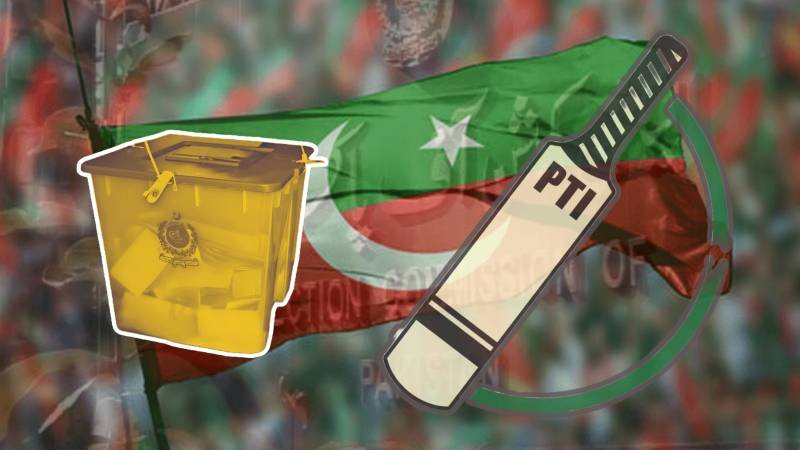Tahir Maqsood Chheena
The past year has been a period of political turbulence for Pakistan Tehreek-e-Insaf (PTI). Once the country’s most formidable political force, it has struggled to find its footing both inside and outside parliament. Its absence from legislative effectiveness has been matched by the limitations of street agitation, which failed to secure any decisive breakthrough. In Khyber Pakhtunkhwa, where PTI retains power, the party has been unable to convert its provincial stronghold into a forceful counterweight against the federal government.
Follow Republic Policy Website
Against this backdrop, the looming by-elections carry historic importance for PTI. They represent not only an electoral challenge but also a rare opportunity to revive organizational vitality, test campaign strategies, and prove continued relevance in the political arena. For a party confronting uncertainty and accusations of isolation, participation in by-elections is not optional—it is an existential requirement.
Follow Republic Policy YouTube
Even if PTI believes electoral manipulation is inevitable, withdrawal from the democratic process is a costly mistake. Political history demonstrates that legitimacy and endurance are built by showing up, not by retreating. Each electoral contest—whether a general election, by-election, or local body poll—provides a platform to reinforce the party’s message and mobilize its base. Boycott, on the other hand, risks surrendering the field to opponents who will gladly occupy the political space left vacant.
At the grassroots level, by-elections are more than just contests for a few seats. They are laboratories for party organization. Candidates are tested, local units are mobilized, and campaign narratives are sharpened. Door-to-door canvassing, polling station management, and voter turnout mechanisms allow PTI to gauge its strengths and weaknesses in real time. For a party that aspires to lead Pakistan again, these organizational exercises are indispensable.
Follow Republic Policy Facebook
Benazir Bhutto’s timeless dictum is worth recalling here: “Never leave the political field vacant for your rivals.” If PTI abstains, it risks irrelevance not just for a few months but for the next five years. Vacated ground will be swiftly filled by other parties, and PTI’s own supporters may drift toward alternatives, disillusioned by the party’s withdrawal. Thus, boycotting by-elections would represent strategic miscalculation of the highest order.
PTI today stands at a crossroads with two stark choices. First, it may declare outright rejection of parliamentary politics. If so, then principle demands consistency: the party must resign from both the national and provincial assemblies, including its government in Khyber Pakhtunkhwa. Such a path, however, would risk political isolation and deprive the party of platforms from which to influence governance. Second, it may resolve to continue democratic struggle within institutions. In that case, its participation in by-elections is not just desirable but absolutely necessary to maintain relevance, visibility, and organizational momentum.
Follow Republic Policy Instagram
From a public policy perspective, Republic Policy strongly recommends the latter option. Pakistan’s democratic system cannot afford selective withdrawals. A functional parliament requires the active participation of all major political forces. By contesting by-elections, PTI can reaffirm its stake in the parliamentary process, re-engage with voters, and measure its appeal beyond slogans of victimhood. Political credibility is earned not through withdrawal but through demonstrating resilience within adversarial systems.
Follow Republic Policy WhatsApp Channel
There is also a broader institutional lesson here. By-elections, though limited in scale, provide insights into electoral machinery, the role of state institutions, and the fairness of contests. Active participation allows PTI to document irregularities, strengthen legal challenges, and build international credibility when it raises concerns about election integrity. A boycott deprives the party of this evidence and weakens its case.
Republic Policy Recommendations
Full Participation: PTI must contest every by-election, regardless of perceived manipulation. Boycott is political surrender.
Organizational Discipline: Treat by-elections as training grounds for candidate grooming, local leadership development, and narrative refinement.
Narrative Shift: Move beyond grievance-based politics toward constructive engagement, offering voters a positive vision.
Legal and Institutional Strategy: Use by-election experiences to strengthen arguments for electoral reforms and institutional accountability.
Public Confidence: Demonstrate resilience and maturity by showing voters that PTI remains committed to democratic struggle despite adversity.
In conclusion, by-elections are not merely side contests for PTI; they are decisive moments for survival, relevance, and renewal. To withdraw is to concede irrelevance; to participate is to reaffirm democratic purpose. Republic Policy insists that if Pakistan’s democracy is to strengthen, all parties—especially PTI—must embrace electoral struggle as the foundation of legitimacy. For PTI, the by-elections are not just about winning seats; they are about proving that it is still a national force capable of shaping Pakistan’s democratic future.
















